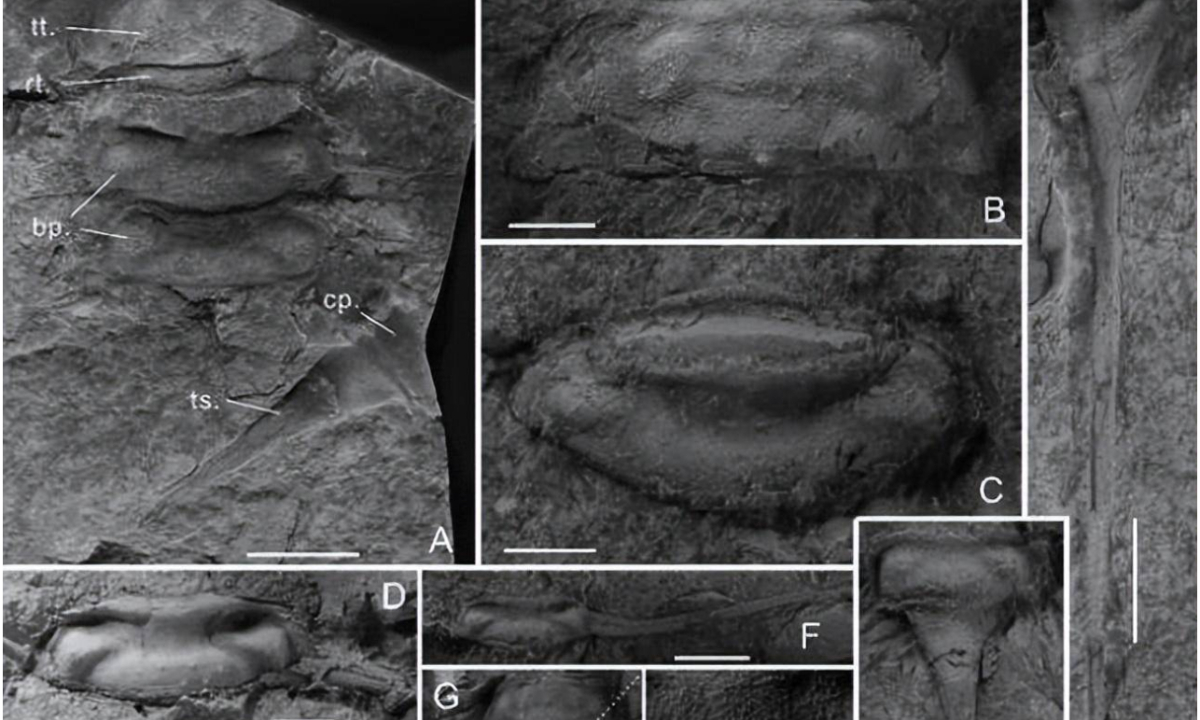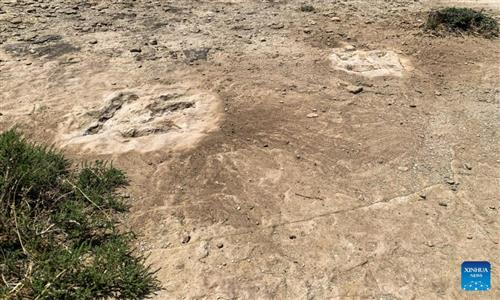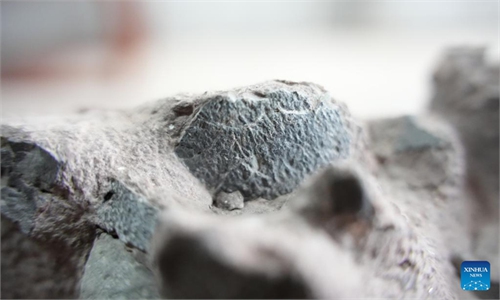New freshwater arthropod fossil discovered in Xinjiang, may be one of the earliest terrestrial animals on Earth ever identified

A joint research team with members from China and overseas discovered a new freshwater arthropod in the Late Silurian stratum at the northwest margin of the Junggar Basin, Northwest China's Xinjiang Uygur Autonomous Region. Photo: web
A joint research team with members from China and overseas discovered a new freshwater arthropod in the Late Silurian stratum at the northwest margin of the Junggar Basin, Northwest China's Xinjiang Uygur Autonomous Region, media outlets reported on Tuesday. This discovery is providing new insights into the origin and early evolution of terrestrial or freshwater arthropods and changes the previous understanding of the early terrestrial ecosystems on Earth.
Arthropods are invertebrates with segmented bodies and limbs, representing the largest and oldest phylum of life. Common insects, shrimp, crabs, and the well-known fossil species like trilobites are all arthropods. There are about 1.2 million species of arthropods alive today, found in various environments from the sea to the land and sky. Arthropod fossils have been found in the Ediacaran fauna, which existed about 560 million years ago.
While vibrant ancient life thrived in the oceans, life on land was also evolving from barrenness. Some simple plants had quietly begun their journey to land, and fossil evidence shows that plants appeared on land over 400 million years ago. The colonization of land by plants improved the atmosphere and rock environment on Earth, marking a significant transition from marine to terrestrial life, leading more and more organisms to migrate to land, and continuously diversifying the living environment.
Through the fossil of pneumodesmus from Late Silurian, scientists speculate that it may represent one of the earliest terrestrial organisms, with arthropods becoming one of the earliest groups to colonize land.
"The discovery of this fossil in Xinjiang region has effectively pushed the timeline of arthropod colonization of land further back," said Xu Honghe, a member of the discovery team and a researcher at the Nanjing Institute of Geology and Paleontology of the Chinese Academy of Sciences.
The discovered Maldybulakia saierensis represents the earliest known freshwater arthropod in China, and also the oldest terrestrial or freshwater arthropod fossil record outside the Laurasia.
Additionally, its discovery has extended the geographical distribution of Late Silurian terrestrial/freshwater arthropods from Laurasia to the island arc in the ancient Asian Ocean in the Northern Hemisphere, indicating that arthropods may have begun to widely diverge from the ocean to live in terrestrial or freshwater environments during the Late Silurian.
It is noteworthy that the discovered arthropod fossils and plant fossils are preserved in the same strata. Researchers identified the ancient environment at the time as freshwater based on chemical markers. "This is a new understanding," Xu said. "It shows that there was already a relatively complete, symbiotic ecosystem of plants and animals on land during the Late Silurian, and arthropods were widely living in terrestrial freshwater environments."
Xu also noted that a systematic and holistic, rather than fragmented and singular study of fossils can restore the environment where organisms coexisted, which is very meaningful for understanding the past, interpreting Earth's environmental changes, and species evolution.
Global Times


